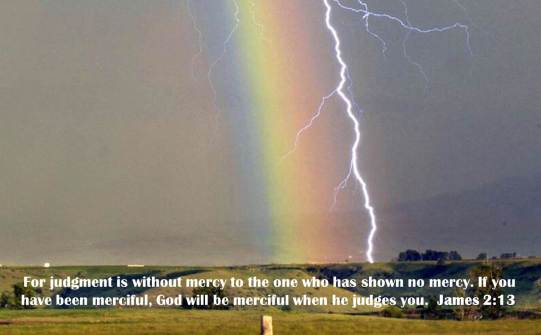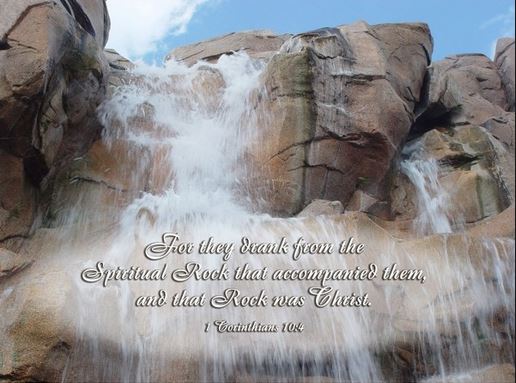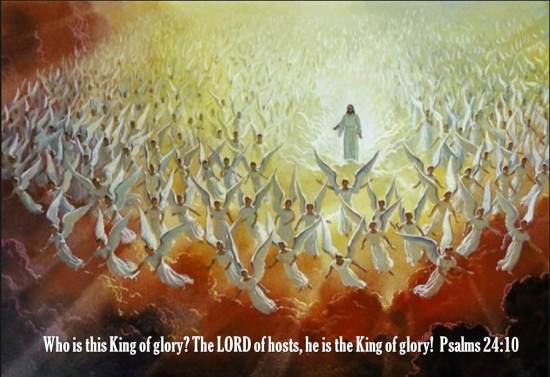
There is a traditional song for Passover entitled Dayenu that means “it would have been enough”. It begins this way: “If He had brought us out from Egypt, and had not carried out judgments against them Dayenu, it would have sufficed us! If He had carried out judgments against them, and not against their idols Dayenu, it would have sufficed us!” The song goes on to recount all that YHVH did for the Israelites relative to their exodus from Egypt and their move toward the Promised Land. Actually, all that YHVH did was needed to accomplish His purpose!
For many of us, salvation seems to be all that we need. To be forgiven for our sins and to be restored to relationship with YHVH is monumental and is far more than we have any right to expect. Even though it seems sufficient, Yeshua’s suffering and death provide us much more. YHVH has so much more that He wants to accomplish.
When we accept Yeshua as our Lord and Redeemer, we are freed from slavery to hasatan and become children of the Most High God. We are clothed in the righteousness of Yeshua, a righteousness so holy and pure that none of us could attain it on our own. This seems more than sufficient, but there is still more.
During His first coming, Yeshua demonstrated the gifts He came to bring us. He healed multitudes of people from physical, mental, and emotional damage and He even restored life to some who had died. Yeshua also delivered many people from bondage to demons. What He provided then, He provides to this day. This should certainly be sufficient, but the blessings continue.
Yeshua taught us by His example and His words how to be effective citizens of the Kingdom of Heaven. He explained Abba’s values to us and told parables to make His lessons easier to comprehend. He fed the hungry with a small bit of food that was miraculously multiplied. He met everyone’s needs and He wants to meet our every need also. Surely this is sufficient, isn’t it? Ah, but there is still more.
Not only has Yeshua provided all these things for us, but He has empowered us to share the gifts with others. Yeshua temporarily relinquished all His power as the second Person of the Triune God and was empowered solely by the power of the Holy Spirit in order to demonstrate to us how we could do the works He did and greater. For many Christians this news is too good to be true, so many of YHVH’s gifts are denied and rejected and much of the work needed to build the Kingdom of YHVH is left undone.
A 2009 Barna survey reveals that the majority of Christians do not believe that Satan or the Holy Spirit are actual living entities. Even though YHVH is spirit and we are to worship Him in spirit and in truth, many of us aren’t doing that because we deny the existence of a spiritual realm or are confused that there is a spiritual realm. How much are these brothers and sisters in Yeshua missing because of blindness and/or stubbornness?
YHVH overflows with mercy, compassion, and generosity. He knows that even though we have received our citizenship to the Kingdom of Heaven, we still reside in the Kingdom of Hell. YHVH provides for us not just a bright future, but a delightful present. YHVH did not liberate the Israelite slaves in Egypt just to abandon them in the wilderness. Instead, He worked with them to show them His ways and to prepare them to live as His special people in the land He provided just for them. Likewise, YHVH does not provide us escape from the kingdom of darkness without equipping us to be effective citizens in the kingdom of light.
YHVH provided protection and sustenance (manna, quail and water) for the Israelites. As long as they obeyed and trusted Him, they were not sick and even their clothing did not wear out over a 40-year period. YHVH gave the Israelites His commandments and teachings, so that they could live in harmony and prosperity and all would be treated fairly. He wanted them to be a light to all the other nations. YHVH taught them how to worship Him. The feasts He provided were meant to commemorate what they had experienced as well as to prepare them to recognize and receive their Messiah, who was coming to bring them even greater gifts than they had already received. We read in the book of Exodus how the Israelites wanted to pick and choose among the gifts offered, and even rejected the gifts sometimes. Many times they not only refused to live in the light, but were unable or unwilling to share that light with others.
We often shake our heads at their blindness and stubbornness, yet we fail to first remove the plank from our own eyes. Yeshua has offered us forgiveness, salvation, His righteousness, eternal life, health, protection, teaching through Scripture, His example and the Holy Spirit, deliverance from bondage to demons, and empowerment to do the same works He did. We fail to recognize that every single thing that Yeshua provides for us is absolutely essential to us for both our well-being and the building of YHVH’s kingdom. Yeshua not only shares what He has with us, but He sacrificed Himself so that we might have all that He offers. Will we continue to insult Him by devaluing some of His gifts? Yeshua humbled Himself in every way to obtain for us what we could never get for ourselves. Are we too proud and foolish to admit that we need what He offers? It is not sufficient (dayenu) that we pick and choose only what appeals to us.


